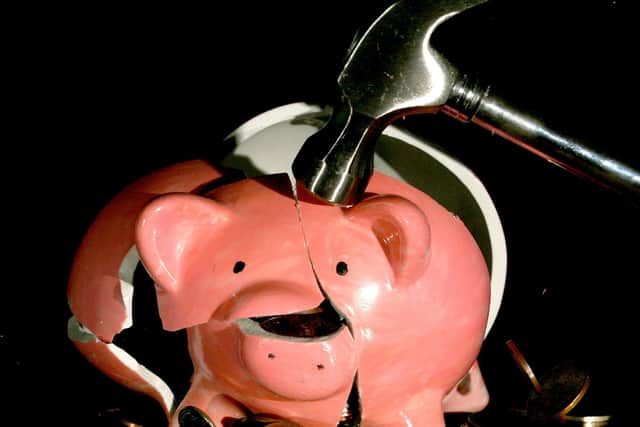Cost of living squeeze already impacting businesses ahead of summer season
Data released yesterday suggested that growth slowed from 0.8 per cent in January to just 0.1 per cent in February, as bills and other daily costs continued to rise.
It comes as new figures reveal almost four in 10 people are worried about their personal finances, the highest level since the start of the pandemic.
Advertisement
Hide AdAdvertisement
Hide AdWill Watts who runs the Hidden Horizons, a company offering fossil hunting and stargazing trips, as well as running a fossil shop in Scarborough, described the last few weeks as unusually quiet.


He told The Yorkshire Post yesterday: “March was a slow month for us, it really was quiet, it was quieter than February which is unusual.”
He added: “March was quiet, and there just weren’t people around. We didn’t really see very many people as well. People just weren’t spending money.
“I think that’s down to either people not having as much money in their pocket or expecting to have less money in their pocket from about now onwards with everything.
Advertisement
Hide AdAdvertisement
Hide Ad“Everything just appears to be going up in price and getting scary and expensive.
“That’s what we saw and I can’t put it down to anything else.”
Yesterday’s GDP figures found the speed at which the UK economy grew slowed significantly in February compared to the previous month,
The Office for National Statistics (ONS) said gross domestic product (GDP) increased just 0.1 per cent in February, compared to a rise of 0.8 per cent in January.
Advertisement
Hide AdAdvertisement
Hide AdThis was below an expected rise of 0.3 per cent predicted by economists.
According to figures out today, almost four in 10 people (38 per cent) are worried about their finances – up from 32 per cent in January and the highest level since the start of the pandemic.
This compares to 33 per cent who are concerned about getting Covid-19, down from 40 per cent in January, the Covid-19 Social Study found.